About the Series
The Elphinstone Occasional Publication Series was originally helmed by James Porter in the early years of the Elphinstone Institute, before being passed on to his successor, Ian Russell. Reflecting the Institute itself, the series fills a gap in Scottish research on Folklore, Ethnology, and Ethnomusicology. The subjects of the volumes listed below are eclectic—vernacular religion; ballad and folk song; education and local identity; and reflexive fieldwork practice. However, the publications come together harmoniously to present a broad but profound investigation of the nature of everyday life in North-East Scotland.
- Taking Part in Music: Case Studies in Ethnomusicology (2013)
- North-East Identities and Scottish Schooling (2005)
- Folk Song: Tradition, Revival and Re-Creation (2004)
- The Bedesman and the Hodbearer (2001)
- After Columba — After Calvin (1997)
Taking Part in Music: Case Studies in Ethnomusicology
£20.00, available from the Online Store
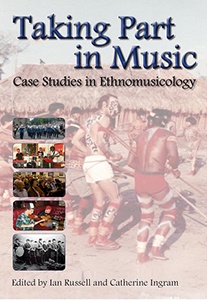
Initially presented at the 27th meeting of the European Seminar in Ethnomusicology (ESEM) held at the Elphinstone Institute in September 2011, these twenty chapters offer diverse contributions to the study of musical participation. Through consideration of musical issues, sociality and relationships, identity and belonging, and place and space, and through a detailed study of the dimensions of musical participation within the contemporary Swedish context, these chapters are a vivid reminder of why musical participation remains an important topic worthy of serious study. With its empirically-rich subject matter and contemporary global focus, Taking Part in Music gives a fascinating insight into the many factors that continue to motivate us to make and study music, and will be of interest to scholars and practising musicians alike.
North-East Identities and Scottish Schooling
£11.00, available from the Online Store
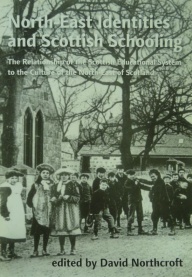
— Sir Henry Craik
This is the claim which editor David Northcroft and contributing authors examine in the papers and the real-life interviews of North-East Identities and Scottish Schooling. How did the historical actualities compare to all those tales of 'lads o' pairts', of 'dominies', and the local 'skweel'? What was the fate of the Doric, under a regime that insisted on academic uniformity, often at the end of the tawse? How did writers, like Lewis Grassic Gibbon and Jessie Kesson, represent their experiences at its hands? Whatever the final judgement, there is no doubt that 'Scottish schooling' has made a profound impact upon those who have grown up in the North-East. With its combination of lively scholarship and first-hand witness, North-East Identities and Scottish Schooling offers a vivid reassessment of the region's rich, and contentious, educational inheritance.
Folk Song: Tradition, Revival and Re-Creation
£20.00, available from the Online Store
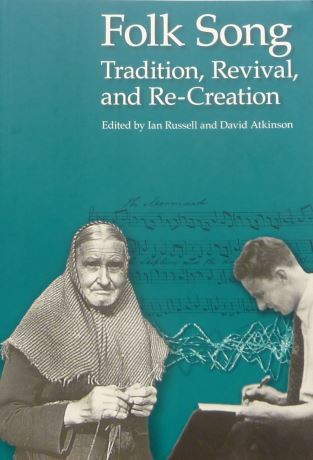
The subjects covered range from ballad studies to folk-rock, from the engravings of Hogarth to the Manchester Runway protest, with differing theoretical and critical perspectives, including features on several of the prime movers - Sabine Baring-Gould, Frank Kidson, Lucy Broadwood, Annie Gilchrist, Gavin Greig, Maud Karpeles, Ruth Herbert Lewis, Annabel Morris Buchanan, Ewan MacColl, Moses Asch, Louise Manny, and Peter Kennedy. This is a fascinating and timely collection of new insights in the field of folk song, representing the exciting diversity of current research, and deserves to be widely read by scholars and folk revival participants alike.
The Bedesman and the Hodbearer
£11.00, available from the Online Store
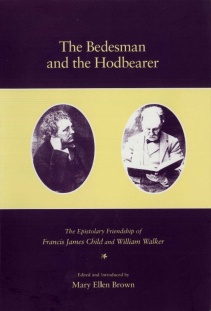
Edited and introduced by Professor Mary Ellen Brown, then Director of the Institute for Advanced Study at the University of Indiana, the book brings together for the first time the two halves of their correspondence: from the Houghton Library at Harvard and from Aberdeen University's Historic Collections, Special Libraries and Archives. Child's monumental The English and Scottish Popular Ballads (1882—1898), the standard text for ballad studies, was published without an introduction, which he had intended to remedy but for his untimely death in 1896. This fascinating correspondence helps the reader to gain an insight into Child's method of working, as well as the remarkable friendship the two men established.
After Columba — After Calvin
£12.50, available from the Online Store
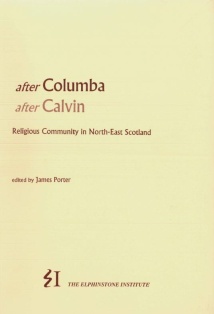
The North-East is perhaps the most varied and distinctive region in Scotland in its religious beliefs and practices. Accepting the Reformation reluctantly, it became the principal centre in the country of Episcopalianism and Jacobitism. But theological conservatism was paralleled by a willingness to innovate and experiment, so that for a time the Society of Friends, and more recently various varieties of the Brethren, have had a significant following, while the Disruption of 1843 and the successive revivals of the hundred years from 1850-1950 had a considerable impact on the region. After Columba — After Calvin is the first volume to offer a map of this fascinating terrain.
